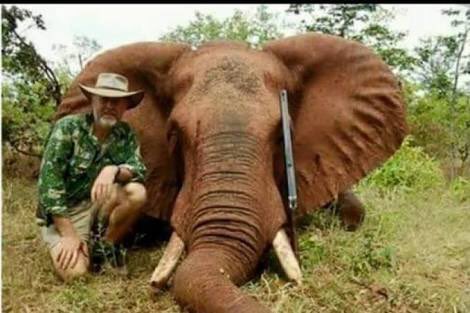
Australian MP Robert Borsak has courted controversy by saying he has hunted and eaten an elephant. He has since the admission confirmed to News Corp on Wednesday he had indeed eaten an elephant, "but not in one sitting."
In the viral video captured during the late-night sitting of the state parliament on Tuesday, Borsak, the New South Wales Legislative Council representative of the Shooters, Fishers and Farmers Party, which advocates for the rights of hunters, was criticising animal rights groups and propounding his philosophy of eating meat he had hunted himself when a Greens MP interjected.
"Did you eat the elephant?" Jeremy Buckingham asked. "Yes," Borsak replied, without missing a beat.
Buckingham, appalled at this revelation, said: "It's sick to shoot and kill an elephant for thrills, and it's revolting that Borsak would eat the elephant. He's unfit for office."
In response, the Shooters, Fishers and Farmers Party hit back by calling Buckingham a hypocrite, and circulated a photograph of the MP eating a "freshly-hunted" sausage at a barbecue.
About his hunting trip to Zimbabwe, Borsak told the Daily Telegraph: "I eat it while hunting over there, usually in the form of billtong (dried meat). Most meat however goes to the traditional owners of the land upon which they are hunted and killed, along with hunting fees. Elephant billtong is quite tasty and they are hunted on a sustainable yield programme."
Borsak made the admission because he had grown "tired of the skewed animal rights ideology." He said: "Animals do not have an intrinsic human right. Humans have a right to eat meat if they choose to do so. It is as simple as that."
In 2015, Borsak had written a column in the Sydney Morning Herald titled "Why I shoot elephants" to respond to a news report about former Australian fast bowler Glen McGrath with pictures showing him posing next to a hunted elephant.
The use of licensed and organised hunting to control animal populations and fund the local economies in Africa has been a contentious issue. The killing of the beloved Cecil the lion by dentist Walter Parmer last year had led to international furore against him and an eventual dip in the number of hunters operating in Zimbabwe. This phenomenon has been dubbed "the Cecil effect," and has reopened the debate on animal conservation, animal control and sustainable and ethical hunting.

















